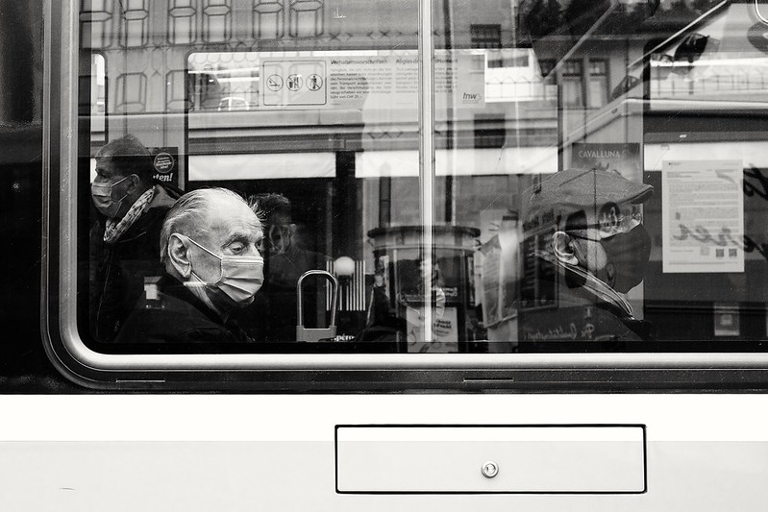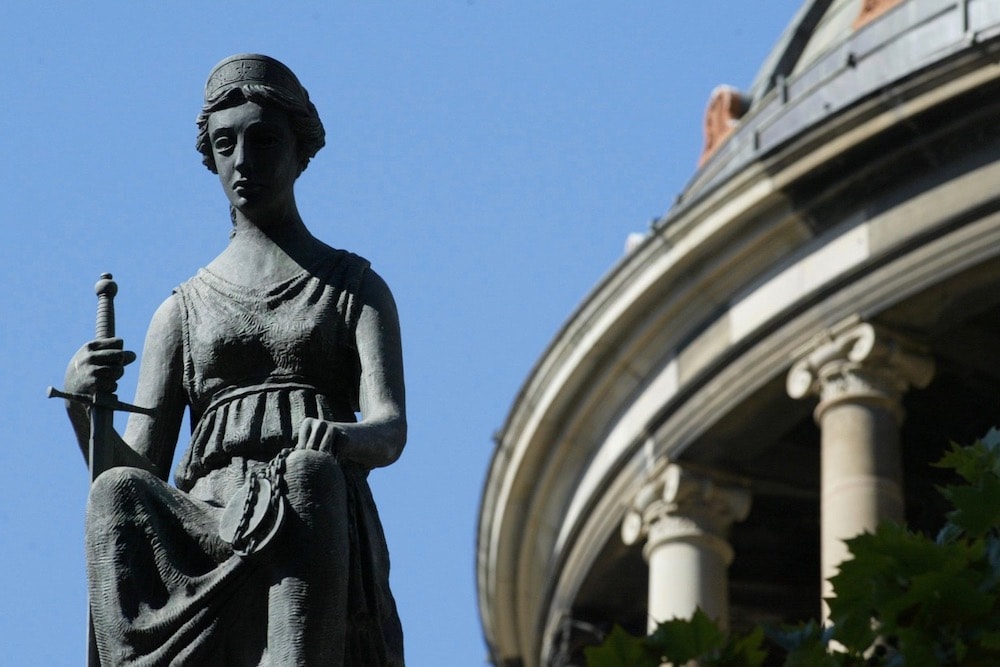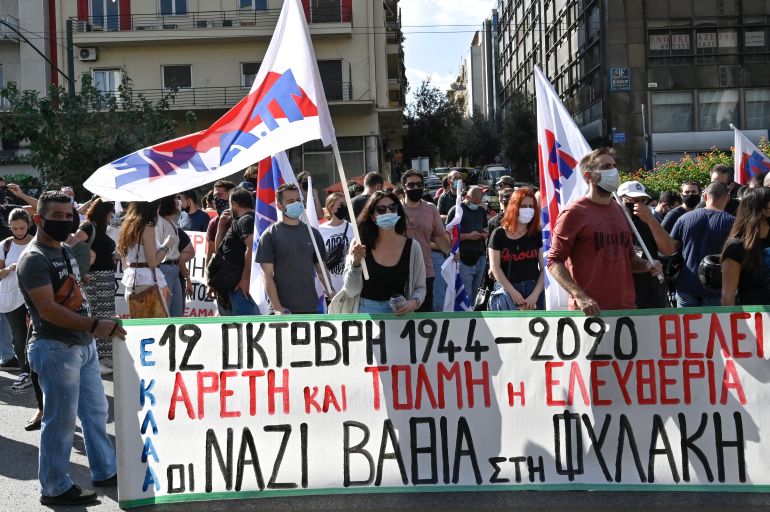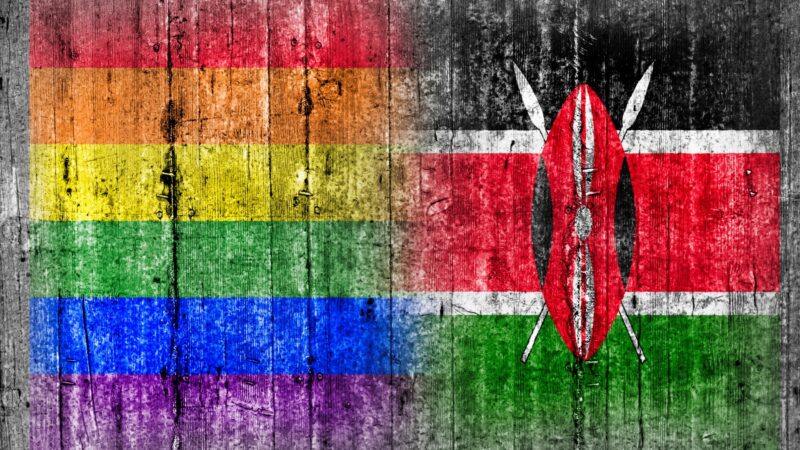Lakh =100,000
Crop damage is a serious concern and the toque macaque tops the list of pests. But with a controversy erupting, Chinese officials have denied any involvement.
Malaka Rodrigo

Monkeys at a Buddhist temple in Colombo. | Reuters
Sri Lanka’s animal-human conflicts are on the rise with increasing crop raids, but a recent request from a Chinese company requesting 100,00 toque macaques from Sri Lanka has fueled a fresh debate on wildlife exploitation.
Crop damage by wild animals has posed a serious problem to many people, especially farming communities, and a report last year estimated an overall loss of 30.215 billion Sri Lankan rupees ($93.6 million) during the first half of 2022.
The toque macaque (Macaca sinica) tops this list of pests with coconuts being the most affected crop. As Sri Lanka looks for solutions to the problem, a statement by Agriculture Minister Mahinda Amaraweera about a Chinese company’s wishes to import 100,000 macaques has resulted in a huge outcry from animal rights activists and environmentalists.
“The minister says the animals will be exported for some Chinese zoos. However, there are only a few zoos there with the ability to accommodate this many numbers of monkeys. This justly fuels our fear that this is not the real purpose and the macaques may be used for medical research,” says Panchali Panapitiya of the animal rights non-profit Rally for Animal Rights and Environment.
“We know that monkey meat is considered a delicacy in some parts of China. Sri Lankan monkeys may even end up on their plates,” Panapitiya tells Mongabay. However, it is now illegal serve monkey brain in China and violations can result in imprisonment extending up to 10 years.
Suspicions were triggered when recent news reports suggested that China was facing a shortage of experimental monkeys. Other media reports suggested that China was also keen on importing donkeys and dogs from Pakistan, mainly for consumption.
As the controversy grew, the Chinese Embassy of Sri Lanka issued a statement denying any involvement of the government of the People’s Republic of China in any “monkey imports” from Sri Lanka.
Clarifying, Minister Amaraweera says the request, which came from a private company, is to be tabled for a cabinet decision. “As macaques have become a major agricultural pest, we need to control their population, and this request is an opportunity to get started,” Amaraweera tells Mongabay.
Amaraweera has estimated the macaque population to be in the range of three million, which has raised some doubts.
Leading primatologist Wolfgang Dittus of the Smithsonian Institution says there are no scientific reports to validate the quoted number. Dittus made the first and only estimate of the toque macaque populations back in 1977. That study estimated the population to be fewer than 600,000.
There are three recognised subspecies of the endemic toque macaque: the dry zone toque macaque (M.s. sinica), wet zone toque macaque (M.s. aurifrons) and highland toque macaque (M.s. opisthomelas). The 1977 survey estimated there were 439,000 macaques in the dry zone, 1,50,000 in the lowland wet zone and 1,500 individuals of the montane subspecies.
Since then, the natural habitats of macaques in all three zones have seen a substantial reduction of about 50-70%, suggesting a proportional decline of macaque populations in their natural habitats, says Dittus.
However, the macaque population has had exponential growth around some human settlements due to the accessibility of food sources in the past 30-50 years linked to an upsurge in tourism and economic development. These population explosions are site-specific and not geographically widespread, and they have two negative consequences.
First, macaques are most numerous near human habitations where they come into conflict with people. Second, in such places, macaques are very conspicuous and create a false impression of being overrun by too many macaques islandwide, Dittus tells Mongabay.
Meanwhile, a 2021 study conducted by a team led by Jennifer Pastorini of the Center for Conservation and Research assesses that toque macaques are distributed in more than 80% of the island. This assessment was based on a questionnaire-led survey, and does not provide any indication of densities, or the abundance, of species, says Pastorini. For conservation and management, taking the observed distribution as a baseline, finer-scaled surveys should be conducted for in-depth findings, the researcher says.
The conservation status of the toque macaque has been included in the International Union for Conservation of Nature, or IUCN’s, International Red List as endangered. The Sri Lanka National Red list placed the toque macaque under the least concern category in 2012 but the more recent assessment, which is still in press, recognises its status as “vulnerable,” says Dittus, who was involved in the national red list review.
“Whatever the reasons, exporting monkeys is not a good idea and there is no legal provision to do so,” says Rohan Pethiyagoda, a taxonomist and a naturalist who earlier served as deputy chair of the IUCN’s Species Survival Commission. A government that permits this export is going to have egg – and a lot of monkey poop – all over its face, Pethiyagoda tells Mongabay.
Human-monkey conflict has been an issue for some time now, and instead of sudden “knee-jerk” reactionary solutions, Sri Lanka should plan to face the conflict properly, says Sumith Pilapitiya, a former director general of the Department of Wildlife Conservation.
Pilapitiya recalls that experts collaborating with multiple agencies have prepared a “Strategy to Conserve and Coexist with Sri Lanka’s Monkeys — 2016 to 2026,” which includes detailed actions and budgets, with multiple agencies pinned with the responsibility of implementing identified actions. Had this happened earlier, the problem could have been lesser today, Pilapitiya tells Mongabay.
Culling not a solution
The real strategy for dealing with human-monkey conflict lies in finding mechanisms to reduce conflict between humans and primates. “Our researchers based in Polonnaruwa as well as others, have dealt with these issues for many decades and have recommended nonlethal methods to reduce conflict,’ Dittus said.
However, farmer organizations and local communities living in places where monkey raids are regular have welcomed the proposal to export monkeys.
“We do not care which country the monkeys are exported to as they destroy our crops and raid our properties regularly, making life extremely difficult,” says Pandukabhaya Rajakaruna, head of the Podujana Farmers’ Association. He counters the views expressed by environmentalists as being far-fetched and not grounded in reality, especially because they don’t have to live in monkey- infested areas and do not have to experience daily property damage and crop raiding. “It is easy to romanticise from far, but those affected by these monkey populations only know the difficulties, “he says.
Whether the monkey exporting happens or not, the special committee set by the Agriculture Ministry has identified the need to control the toque macaque population. Other countries use different methods, including culling, to control the animal populations based on scientific evaluations. For example, the Sint Maarten in the Caribbean approved the eradication of its invasive monkey population early this year, while Australia annually culls its kangaroos.
But culling to control populations will be a difficult wildlife management option to implement in countries like Sri Lanka.
“Sri Lankan culture has a deep reverence for life, so Sri Lankans will not support killing of any living beings and this idea his would extend to pests even when they are extremely troublesome to humans,” says Pethiyagoda. Organised culling such as monkey hunts or monkey shoots can never materialize, as people just would not let it happen, he says. “So, there remains only a single solution: protect crops as best you can and get expert advice in doing so,” adds Pethiyagoda.
This article was first published on Mongabay.




.jpg)







